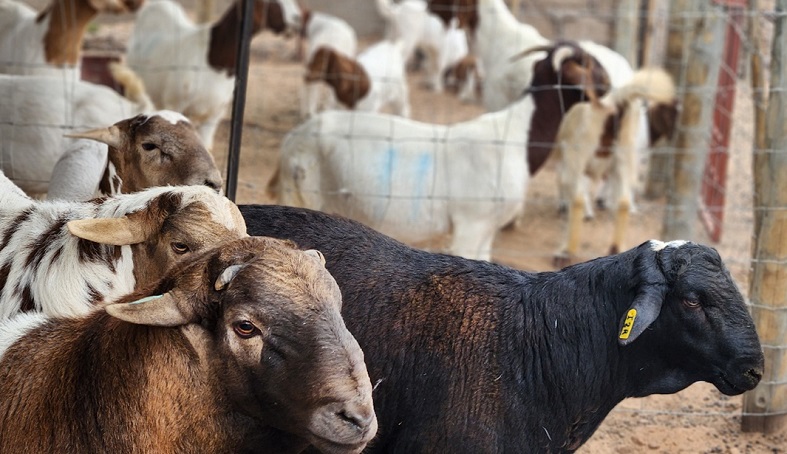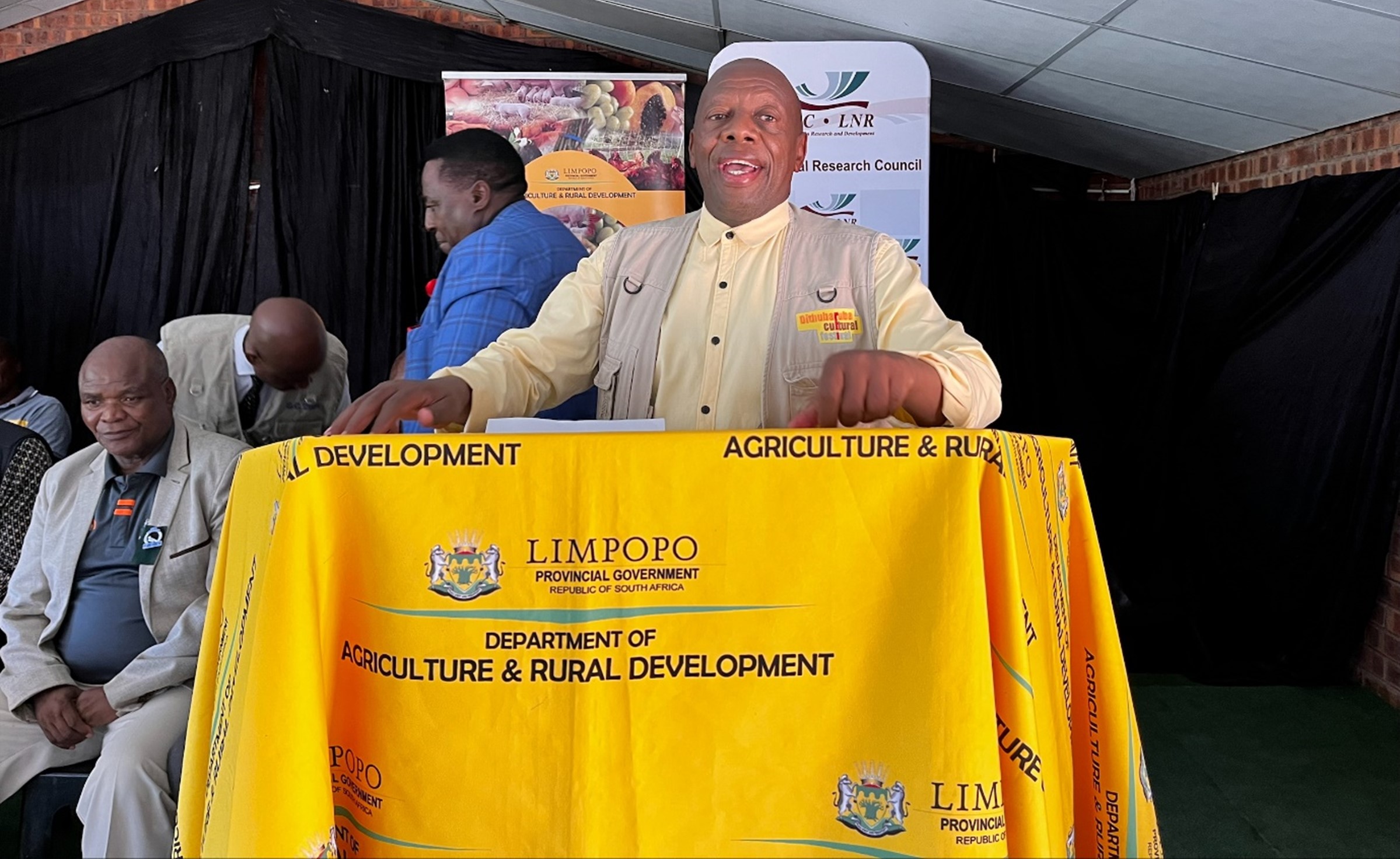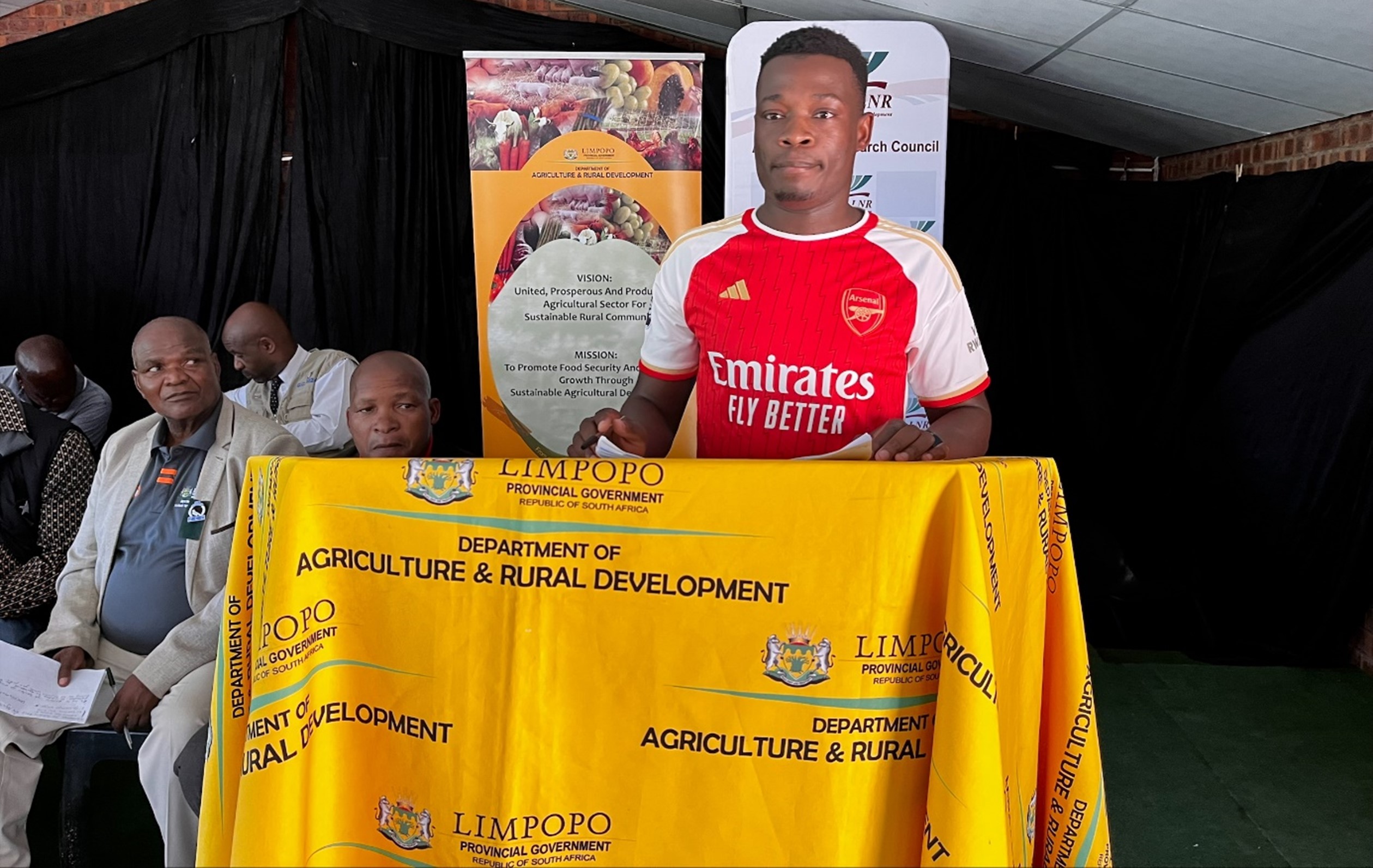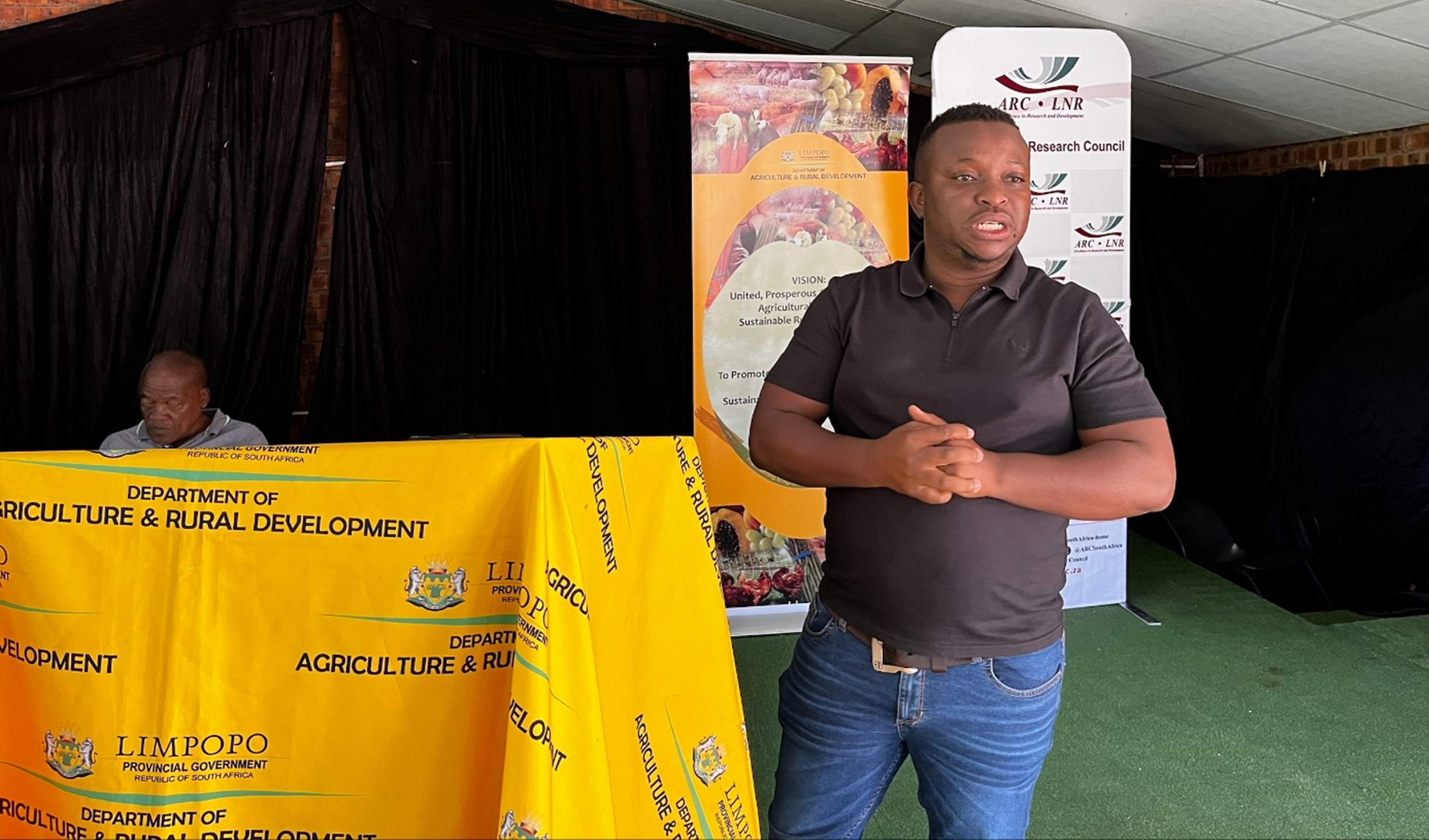By Maphuti Machabaphala

As livestock improvement and management is key to any farming establishment, the Maraba-Mashashane Extension Officers under the Capricorn North-Western Agro Ecological Zone in collaboration with the Agricultural Research Council have deemed necessary to train the farmers of Christina Village in Ga-Matlala and the farmers of Moletji Moshate, both under the Capricorn District on the 27th and 29th January 2025, respectively.
The main objective of the non-credit barring training was to educate and equip the farmers on the importance of Indegenous small stock conservation, identification and record keeping, small stock nutrition, common small stock diseases, identifying the common small-stock diseases and prevention methods, the various departmental programmes available to farmers and the modern technology used to combat stock theft within the rural areas.
Indigenous small-stock breeds are crucial part of the rural economic hub, according to Mr Madia Kabelo stationed at the Mara Research Station. And this is evident through the beneficial role that these goats and sheep play by allowing for milk production, meat production and slaughtering for religious purposes in some instances, also, the breed has excellent adaptability traits and are not easily attacked by illnesses or parasites, and they have a good birth rate with little supplementation needed during the early stages of the lamb or kid. In addition, conservation of this indigenous breed should be a priority to the rural farmers, by having a conservation programme to safeguard the genetical make of the breed to ensure re-production.
Dr Madilindi Matome from the ARC presented on the various methods of mitigating livestock theft through DNA technology. He mentioned that stock theft is detrimental to small holder and emerging farmers growth and expansion in the rural areas of Limpopo, as these malicious acts hinder agricultural production levels, contribute to the spread of animal diseases like FMD, posing a threat to food security while influencing an increase in unemployment, poverty and crime. Dr Madilindi mentioned that the DNA technology at ARC is readily available to offer solutions to solving stock theft crimes, and this is possible through DNA profiling of the small or large-stock species, Animal Forensic services and Livestock identification Catalogue (LidCat). These services can help solve parentage disputes of livestock cases, ownership disputes and stock theft. In conclusion to his oral presentation, Dr Madilindi stated that all cases submitted to the ARC should be accompanied by an official SAPS covering letter, an Official authorisation letter from SAPS stock theft headquarters, a background of the case, sample description and labelling, the investigating officers contact details and the type of analysis required.
During the closing of the Moletji Moshate farmers day, Kgoshi Kgabo Moloto III expressed his gratitude to the Department and the ARC for organizing this event with the intention of empowering and equipping the farmers and community with the much-needed information to upscale and improve their farming practices and improve the rural economy of Moletji. Kgoshi Moloto III encouraged the organisers from the Department to be frequenters at Moletji Moshate to allow for follow ups on the previous teachings and further spread more knowledge to the local farmers and inspire the community to take part in agriculture. In closing he mentioned that he himself has learned a lot from the session and is looking to apply the shared knowledge and teachings to his farming practices as well.





